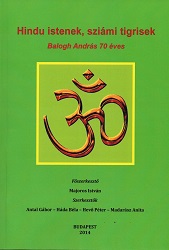
We kindly inform you that, as long as the subject affiliation of our 300.000+ articles is in progress, you might get unsufficient or no results on your third level or second level search. In this case, please broaden your search criteria.

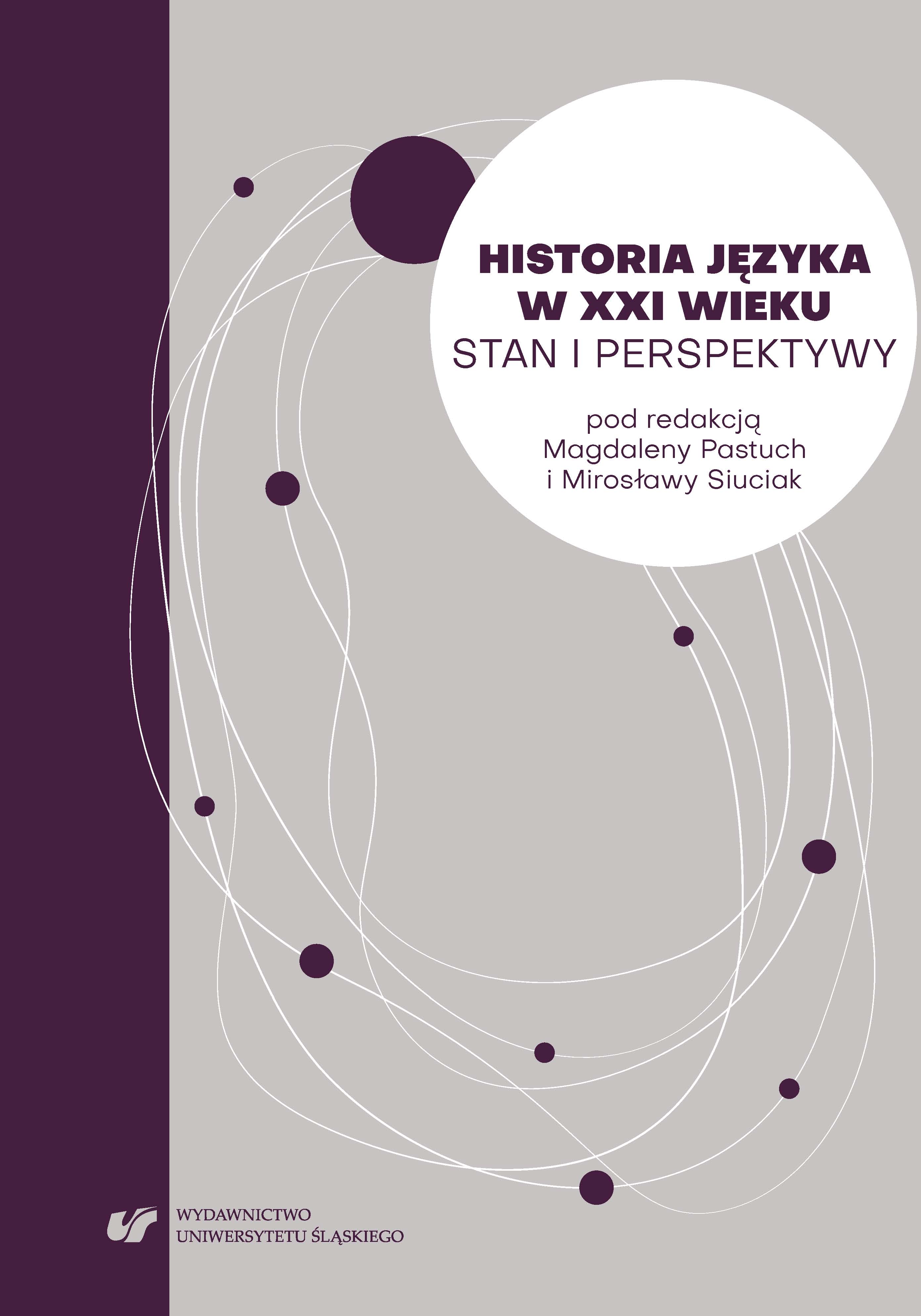
In this article the author pays particular attention to the issue of translocation of elements of linguistic category. It is about the language units, which are either the residues of an old category, or they lose the relation with the primary set despite its existence. Hence, the writer is interested in the approach to language evolution in the light of [through the prism of] processes related to ripping off the units that belong to a given category. The study over the possibility of analysed transformations, determination of necessary conditions for their coming into existence, or the analysis of the reasons for the assimilations [becoming similar] (to the basic source of translocation), and, ultimately, systematising the existing knowledge will allow to make an interesting description plane of ensuing language transformations; the plane which is more different than ever, and yet diachronic in its nature.
More...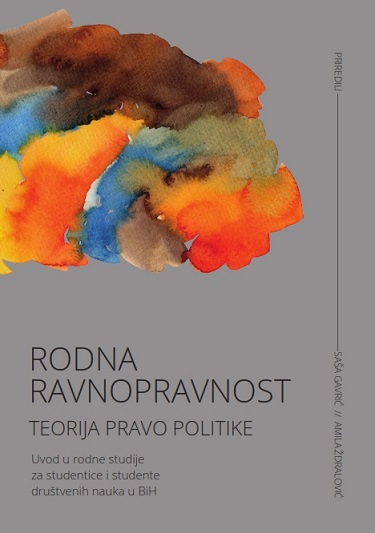
Raspravu o rodno osjetljivoj upotrebi jezika u našoj nauci o jeziku možemo pratiti još od polovine prošlog stoljeća. Zlatko Vince u zagrebačkom časopisu „Jezik“ 1954. godine u naslovu donosi dilemu Drugarica direktor, gospođa profesor ili drugarica direktorica, gospođa profesorica? Osvrćući se na postojeću praksu da žene, posebno poslije Drugog svjetskog rata, stječu zvanja i titule koje su nekada bile rezervirane za muškarce, primjećuje kako jezička praksa ne prati stvarnost tako da u raznim društvenim sferama možemo čuti i pročitati oblike kao Ana M., profesor, Marija Z., liječnik-pripravnik i sl. Do tada je doktorka i ministarka značilo suprugu doktora i ministra, i umjesto da se nađe novi naziv za zvanje koje obavlja žena, „kancelarijski, razgovorni, a za njime i književni jezik pošao je drugim putem. Službeni je naziv za žene, kao i za muškarce: profesor, doktor, inženjer, agronom, kapetan, major, pilot i t. d.“ (Vince, 1954, str. 116).
More...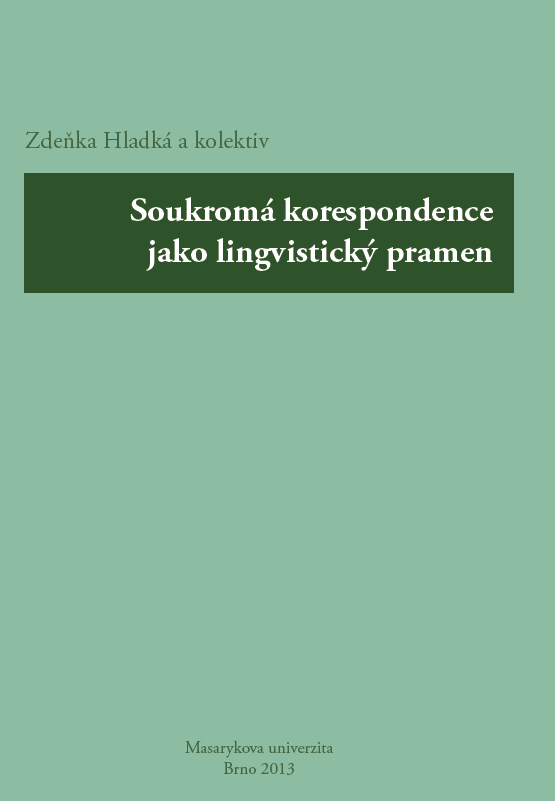
The paper deals with specific sources and methods of historical sociolinguistics and with the possibility of using historical language biographies to reconstruct a language situation: in this paper the specific aspects of the language situation in Bohemia of the 19th century. The paper presupposes that especially private correspondence is a prominent source for historical sociolinguistics because of its interactivity. It holds true also for the narration of language biographies introduced in the correspondence with respect to a specific addressee. The language biography method and its applicability as a method of historical sociolinguistics are demonstrated with the language biography of Friedrich/Bedřich Smetana. In the second part the paper deals with a grammatical analysis of Smetana´s received correspondence. The aim of the analysis is to show which Czech grammatical phenomena are problematic for Czech-German bilingual speakers, who began to learn standard Czech only as an adult.
More...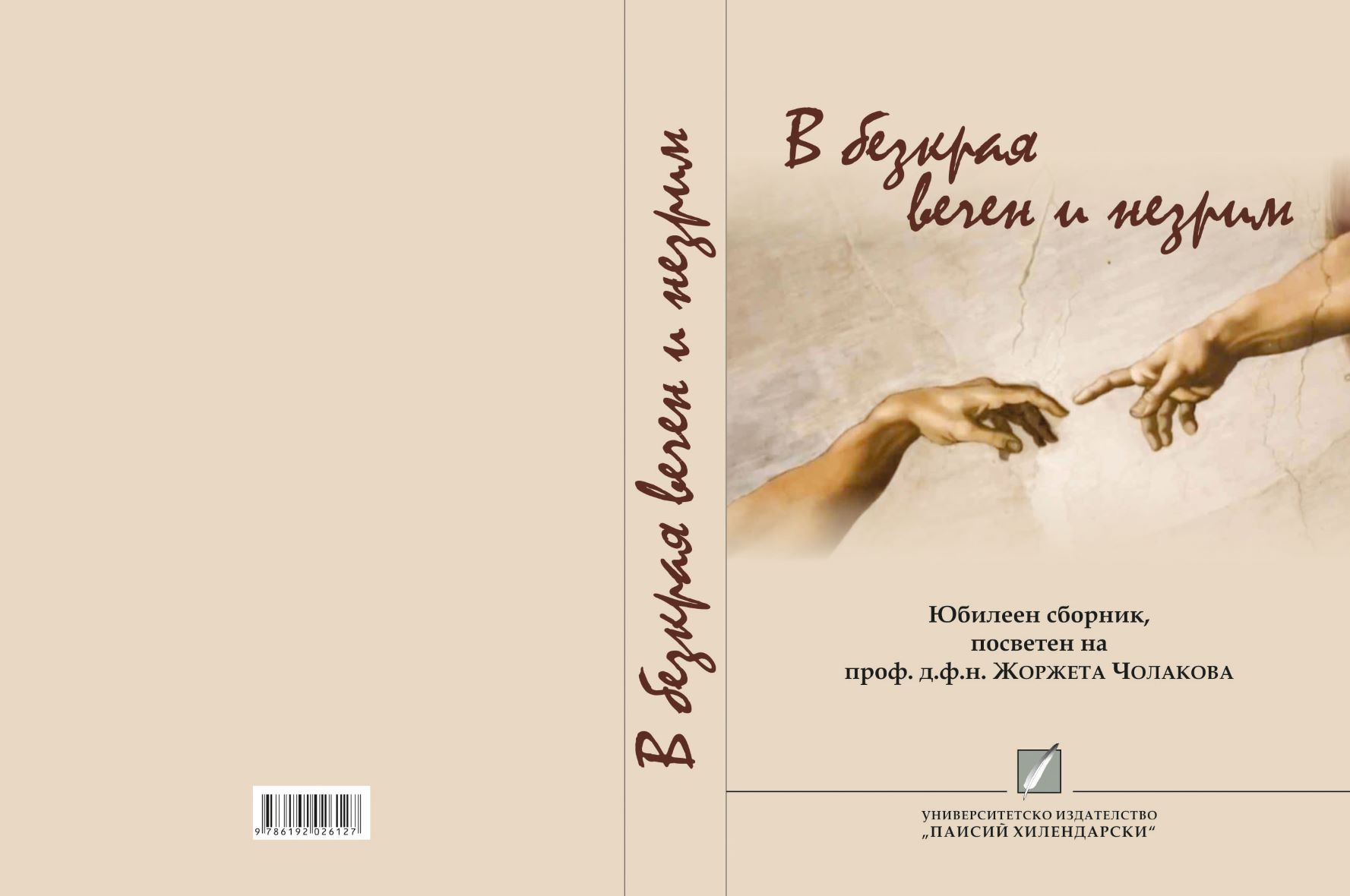
Periodization is a method of categorizing systematically the processes in a given field with regard to its historical past. The central issue that emerges here is how to approach the task so as to bring to the fore those phenomena that delineate one period from another. This text outlines the various visions of eminent Czech scholars who have aimed to charter the periodization of Czech literary language.
More...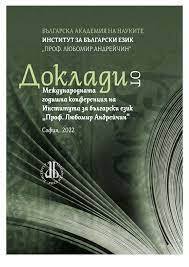
The author aims at analyzing a group of lexical variants in three thematic areas, namely names for land surface and natural relief, for tools and equipment and for persons engaged in agricultural activity, according to the most important Slavonic witnesses of the Byzantine Farmer’s Law. These are the Russian compilation Law Books, and Ms. Slav. 466 from Hilandar monastery, both dating from the 15th century. Despite they attest two different translations, the author argues that they could represent the continuity with the more archaic state in the written dissemination of the Code, conditions for whose translation first arose in the 10th century Bulgarian kingdom.
More...
The article is devoted to the problem of understanding the Old Bulgarian basis of the Slavic written tradition in Russian philology. The relevance of it is due to the importance of assessing the continuing debate on the origin of Slavic writing, in particular the writing of the East Slavs. The aim of the article is to show the patterns of the dynamics of the views reflected in the literature on the question of the roots of the East Slavic script. The author traces the evolution of ideas about the origin of the Old Russian literary language and writing – from the establishment and recognition of the Old Bulgarian basis in the works of Russian Slavists of the 19th century – up to the hypotheses about the “own roots” of Old Russian writing and literary language in the Soviet period and the subsequent criticism of these hypotheses.
More...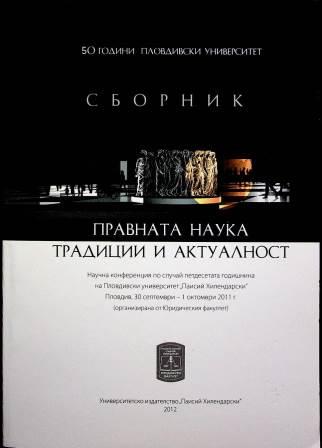
Roman jurists defined an obligation as iuris vinculum, i.e., a legal relationship or bond between persons governed by legal norms other than those established on the basis of religious, moral, or social patterns of behavior. The Roman poet Horace (65-8 B.C.) frequently used legal terms and situations as artistic embellishments. This preference to combine or dress up the poetic image with a legal idea or concept made his style lively and original, but not only that. He also provides indirect evidence of legal practice in ancient Rome.
More...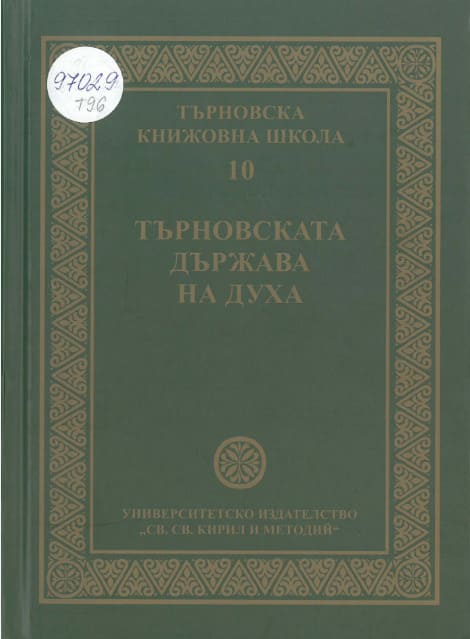
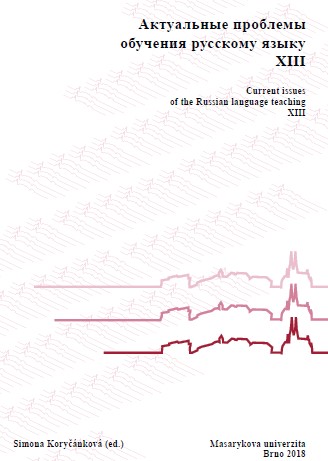
Phrases and their syntactic meanings in Old Russian were very different from contemporary language. In the course of the historical development there were shifts of meaning of some cases. These changes were caused the attempt of the language to express certain relations in a more accurate way. Expressing of certain meanings by simple, non-prepositional cases was gradually reduced; simple cases were replaced by prepositional cases. Historical study of genitive form´s use enables us to hypothesise their original semantics.
More...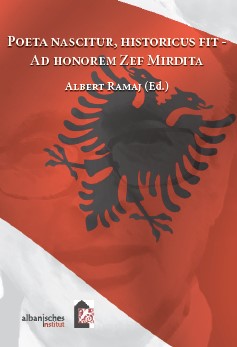
U duk sikur bora e bardhë, e bukur, mik fort i rrallë për një qytet bregdetar si Durresi, filtroi edhe më ajrin e detit dhe bëri më të tejdukshme konferencën shkencore që organizonte Qendra e Studimeve Albanologjike (Shqipja në etapën e sotme, politikat e përmirësimit dhe të pasurimit të standardit, Durrës, 16-17 dhjetor 2010). Pjesëmarrësit qenë hulumtues e dijetarë me emër prej të gjitha trojeve shqiptare dhe prej mërgatës.
More...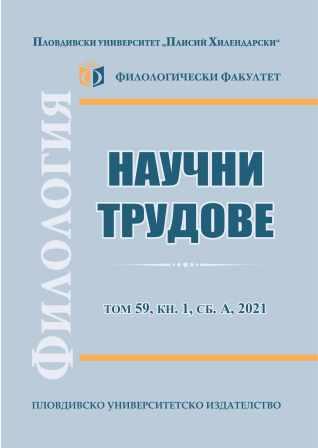
This paper analyses – on the basis of the surviving documents – the context in which in September of 1658, citizens of Chiprovtsi sent a letter to the pope asking him to secure the salary for the teacher in their catholic school Ivan Lilov/Lilich. A facsimile edition of the document written in Venetian Cyrillic in Illyrian is provided, accompanied by a translation into present-day standard Bulgarian.
More...
Nikola Mihaylovski is best known in the history of the modern Bulgarian literary language as a co-founder, along with Ivan Momchilov, of the Tarnovo School of Linguistics and Spelling. His contribution to the formation of the epistolary style of the modern Bulgarian literary language has not been studied so far. The article examines his book Little Bulgarian Letter book, 1868. His theories about the types of letters are presented. The etiquette of letter templates that he presents in his textbook is analysed, as is the specific terminology used.
More...
The second quarter of the 19th century was associated with the initial construction of the New Bulgarian literary language, a period in which the Slavonic-Bulgarian type of language formation dominated, containing spoken and bookish elements in an unbalanced ratio. In the works of some authors, it is closer to the Church Slavic language, while in others – to common speech. The observations on the books Pavlovich wrote in the 1830s (arithmetic and grammar) show that they had the second, more liberal line of language construction. This article aims to defend this thesis by analyzing „Pismennik obshtepolezen“ (1835) at a syntactic level and to highlight the merits of the author in the affirmation of syntactical norms, which is a point of interest in view of the development of the Bulgarian literary language.
More...
The proposed text is dedicated to a little-known book of letters (1850) by Stoyan and Hristo Karaminkovi. Preliminary remarks on the samples for commercial letters are presented, as the linguistic observations are made from the point of view of the more peculiar syntax – the correspondence is dominated by complex mixed sentences, realized in different varieties.
More...
In the proposed article, the grammatical and lexical means of expressing politeness are subjected to analysis by means of the descriptive analytical method, as are the clichés for ending in 60 sample letters, recommended in the ‘Pismovniche’ tutorial. The authors, Stefan Popov and Petar Avramov, advise using second-person pronouns and plural verbs in all letters addressed to parents, close relatives, and other people to whom students in grades 5 through 8 send letters. This recommendation is interpreted as being introduced by certain French sources used in compiling the tutorial; it is also influenced by trends in the last decade of the Bulgarian Revival. The lexical means of courtesy (address and title) are an episode of the gradual imposition of the titles Mr. and Mrs.; the vocative forms of nouns naming the addressees are a natural norm in the language. The clichés at the end of the letters help their addressees to master the art of correspondence.
More...
The article is dedicated to three textbooks in stylistics, published at the turn of the twentieth century, which marks the beginning of modern Bulgarian stylistics. The book of R. Puhlev contains a short theoretical part. The books of B. Angelov and V. Yordanov are impressively modern with regard to the included problems, as well as the used terms and their definitions. The two texts are juxtaposed and some of the theoretical accomplishments of the authors are highlighted. Both books have been written for didactic purposes, yet they are fundamental for the development of stylistics in Bulgaria.
More...
The Conjunctions chtoby ‘so that, in order to’ and daby ‘so that, in order to’ arose almost simultaneously in Russian (the first, most likely, in Church Slavonic texts), moreover, in the period from the 15th to the 17th centuries there was no strict distinction between them, although there had already been a tendency for more frequent use of chtoby in administrative and everyday texts, and of daby in Church Slavonic texts. On the other hand, the data of modern languages (19th – 21st centuries), both Russian and Church Slavonic, indicate that at some point chtoby was finally ousted from the “synodal” Church Slavonic, and daby in Russian already was already perceived as a “bookish” and archaic conjunction. The author puts forward the thesis that the roots of the named functional and stylistic differentiation should be sought in the 18th century, the period when separate Church Slavonic and Russian literary languages were born.
More...
The aim of the scientific research is to present and analyze the findings of three Russian linguists from the first half of the 19th century on a fundamental problem, related to the parts of speech. In the course of the study it was found that during this period in Russian philological science there was a purposeful research effort to update and modernize the „sacred“ hitherto eight-member division model of Aristarchus. The most valuable thing is that the three authors of grammars choose different taxonomic criteria, leading to different classifications according to the number and composition of the parts of speech.
More...
The paper discusses the conceptions expressed in the1835 ‒ 1878 period, which relate to the meaning of direct evidence in Modern Bulgarian. It is argued that the terms definite tense: indefinite tense are polysemous. The text also comments on the first proposals for the existence of the -х-/-ш- ending defined as a marker of direct evidence by distinguished linguists such as A. Aleksandrov, I. Kutsarov, etc.
More...